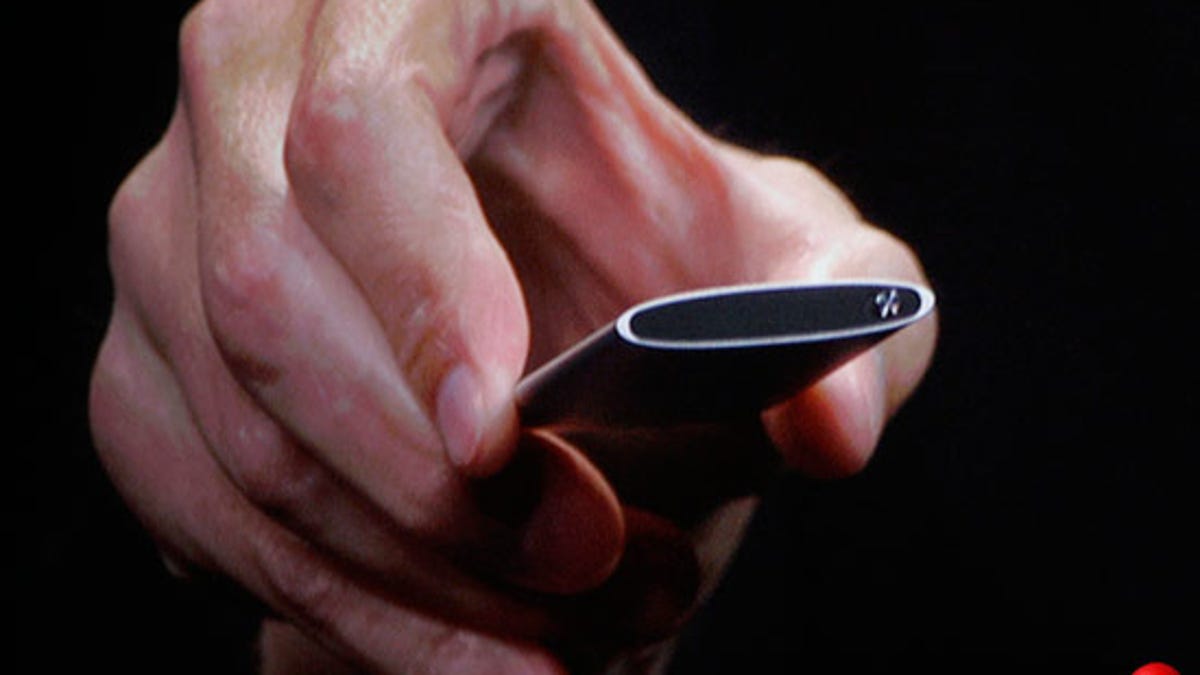Apple's iPod event: 800-lb gorillas don't need buzz
Company didn't blow anyone away with Tuesday's iPod launches, but it continues to make the right tweaks to its juggernaut.

Apple appears to be taking that old adage to heart as it concerns its iconic iPod lineup: if it ain't broke, don't fix it.
Tuesday's iPod event provided few surprises but reiterated Apple's commitment to making the kinds of incremental changes to its iPod lineup needed to stay on top of the competition and to keep customers coming back for more. New colorful iPod Nanos and a cheaper iPod Touch introduced by CEO Steve Jobs will be the centerpiece of the company's lineup for the holidays, which account for up to 40 percent of annual sales for iPods.
Investors seemed unimpressed with the new iPods. But it was a supremely awful day for the stock market as a whole, and sell-on-the-news is the standard reaction from the market to an Apple event. Despite what you might have heard from certain pundits so adept at building men from straw, few onlookers who spend their personal and professional lives watching Apple expected anything crazy from this event.
Over the past three or four years Apple has indeed written itself into future marketing textbooks with its penchant for special events that generate buzz, but the iPod is old hat. Almost seven years after the introduction of the first iPod, over 73 percent of all U.S. residents who want a portable digital music player choose an iPod, according to NPD figures presented at Tuesday's event.
This is no longer about a scrappy underdog company cementing its dominance of an industry--as Apple did in 2005 when it stunned people with the iPod Nano--or an outsider looking to shake up an established market, like Apple did in 2007 with the iPhone. Apple owns the music player market. Apple is the 800-pound gorilla of this market, and companies unassailed by competitors have less incentive to take bold risks: just ask Intel or Microsoft.
So while there may not be anything earth-shattering that emerged from Tuesday's event--other than the somewhat-surprising news that Jack Johnson is the top-selling male artist in iTunes history--there was certainly no clunker. Check out CNET iPod expert Donald Bell's thoughts for more color on the new devices. Truly, few expressions of disappointment came from those outside of Wall Street, with its narrow-minded focus.
The new design for the iPod Nano doesn't break as much ground as its great-grandfather did in 2005, but the return to a long and slim design aesthetic seemed at first glance more pleasing to the masses than the "fat Nano" unveiled last year. The addition of the iPhone's accelerometer to the new Nano makes watching video on the most popular iPod more inviting.
Likewise, few radical changes were expected to the second first birthday
Overlooked among new iPods and dreamy surf-rock crooners was perhaps the most important announcement of the day: Apple believes it has fixed what might be its buggiest software release in years, the OS X 2.0. iPod Touch and iPhone owners will get a chance later this week to patch what Jobs himself called "lots of bugs," such as dropped calls, dysfunctional applications, poor battery life, and interminable backups.
It's not unreasonable to wonder whether Apple can continue to be the tech darling of the 21st century without the kinds of buzz-generating events that propelled it to the position it enjoys today. Perhaps that's true of the Mac or the iPhone, markets where Apple is a relatively small player among giants. But event-related buzz is much less of an important factor when it comes to the iPod; at this point, few need to be persuaded that Apple has music-player design chops.
There are much more important factors than buzz for Apple's iPod engineers and marketers to worry about if the iPod is to stay atop the mountain. Since no competitors are really pushing Apple to innovate at the moment, it's incumbent on the company to motivate itself by designing compelling products that give people ways to enjoy digital media on the go while looking cool and ensuring that its quality control doesn't suffer in order to stay on top of this market. Otherwise, perhaps some scrappy underdog could sneak up on Apple farther down the road.
Apple has earned the luxury of making an incremental change or two to its iPods each year that don't necessarily dazzle but do keep the train rolling.
When nearly three-quarters of digital-music listeners are walking the streets with your product in tow, when you have the ability to blanket the airwaves with your advertising, and when your competitors can merely match your advances, you don't need to hit a home run every time.